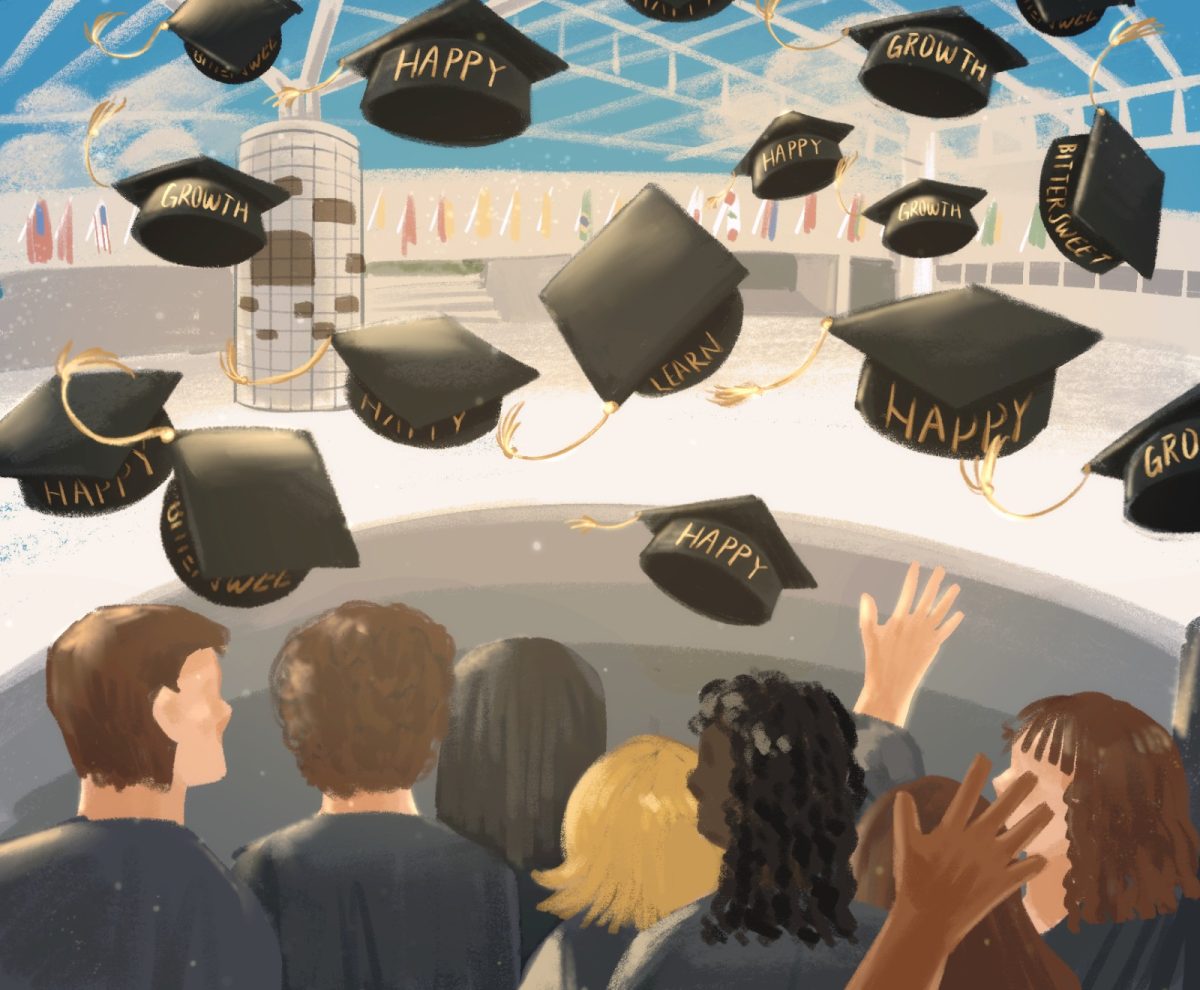Graded’s Office of College Counseling (OCC) has long been the engine driving student success in education. Beyond simply guiding students through the college application process, the OCC has established itself as an active player on the international stage, forging connections and strengthening the school’s reputation in the eyes of prestigious universities. This year, their work has started with a significant milestone, with the number of institutions visiting Graded poised to reach new heights.
“The contact that the counselors have with global universities and world-renowned institutions allows them to open more doors for our students,” explained Carlos Pedroso, College Counseling and Events Officer. This commitment to networking with professionals and institutions around the world is reflected in the OCC’s continuous participation in prominent international conferences such as NACAC (The National Association for College Admission Counseling), College Board Forum, IACAC (International Association for College Admission Counseling), and BMI-Times Higher Education Conference. These events provide an opportunity for counselors Dr. Jeff Neill and Ms. Janan Sabeh to “promote Graded’s unique aspects and establish a presence in the international college counseling community,” which contributes to the OCC’s multi-faceted approach. While the office seeks to connect with institutions that align with the aspirations of Graded’s student body, they also aim to create a dialogue that ensures universities recognize Graded as a beacon of talent and diversity in South America. As Carlos puts it, “Our counselors have an ambitious project to put a spotlight on Graded to bring universities’ attention to our school and our part of the world.”
This year, the ambitious approach has borne fruit. “The OCC expects a 20% increase this year in visiting colleges on last year’s number,” Carlos shared, underscoring the growing interest from colleges seeking to connect with Graded students. Since the beginning of the school year, over 150 institutions from all around the world have come to visit and interact with Graded students.
“They are always working together to manage relationships with countless university contacts and other contacts in the industry,” said Carlos, describing the counselors’ commitment to broadening Graded’s network. This network-building approach reaches to other schools in the region, as Carlos highlights: “Graded also has a strong relationship with other international schools in São Paulo, like Avenues, PACA, Chapel, and Sant’Anna.” By collaborating with these institutions, the counselors foster a community of shared resources to promote São Paulo and Brazil to global institutions, amplifying Graded’s presence within local and international academic landscapes, and establishing a foundation for meaningful and long-lasting partnerships.
Dr. Jeff Neill, Director of College Counseling, highlights the value of these connections, noting the importance of nurturing personal and professional relationships within college counseling. “Some of the language that we often use when we’re talking about college counseling vs. admissions, we’ll say ‘this side of the desk’ vs. ‘that side of the desk,’” he explained. “And it often gives the perception that it’s adversarial. But the truth is that we’re all pulling from the same thing, which is finding the right students for the right school, and it’s easier to do that when you’re working with friends.” The OCC’s goal of ensuring that these relationships are as personal as they are professional ultimately aims to benefit Graded students by creating a genuine and supportive admissions process.
This supportive approach has a direct impact on students, providing them with early, valuable exposure to the college admissions process. Pedro Amaro, a 10th grader, emphasized the importance of these college visits in helping students clarify their goals and values. “I’m really grateful to have the chance to talk to all of these colleges and it’s a great place to start thinking about what you want to do. When you talk to a college rep, it really makes you think about your priorities and what you’re looking for in a school,” he shared. Guilherme Serpa (‘27), added that each representative brings unique insights to the table, helping students understand what makes each institution distinctive. “When they answer the questions we have, whether it’s about IB, sports, SAT, or acceptance rates, it gives us insights into what they’re looking for. They’re always looking to share what is unique about their institution.”
For many students, this early exposure to college representatives has been eye-opening. As fellow 10th grader Laura Russowsky noted “I think that it’s important that Graded is exposing all of the high schoolers and not just seniors to the college process, and it’s important that we’re given the opportunity to explore and gain experience talking to people.” This sentiment is echoed by Andrea Wadih, an 11th grader, who observed that “College fairs offer a perspective of what future you intend to have and what matches best with your own personality.” Additionally, Andre Pini, a 10th grader, appreciated how approachable the college representatives are, allowing students to ask questions freely. “I really like how the college reps are approachable and easy to talk to. They can also guide you based on your question, and it helps you decide what you want to do and where you want to do it.” Finally, senior Samuel Mangini shared that “college fairs give you the opportunity to find out more about the institutions that you are planning to attend, and talking to a college representative can give lots of insights, especially at a time when we’re making big life decisions.”
By providing these opportunities, the college fairs–alongside the OCC’s intensified efforts this year–offer Graded students an invaluable foundation for making informed choices about their futures. Through meaningful connections and guidance, students are empowered to explore diverse academic paths, a testament to the OCC’s commitment to supporting each individual toward finding their best-fit institutions.
Sources:













